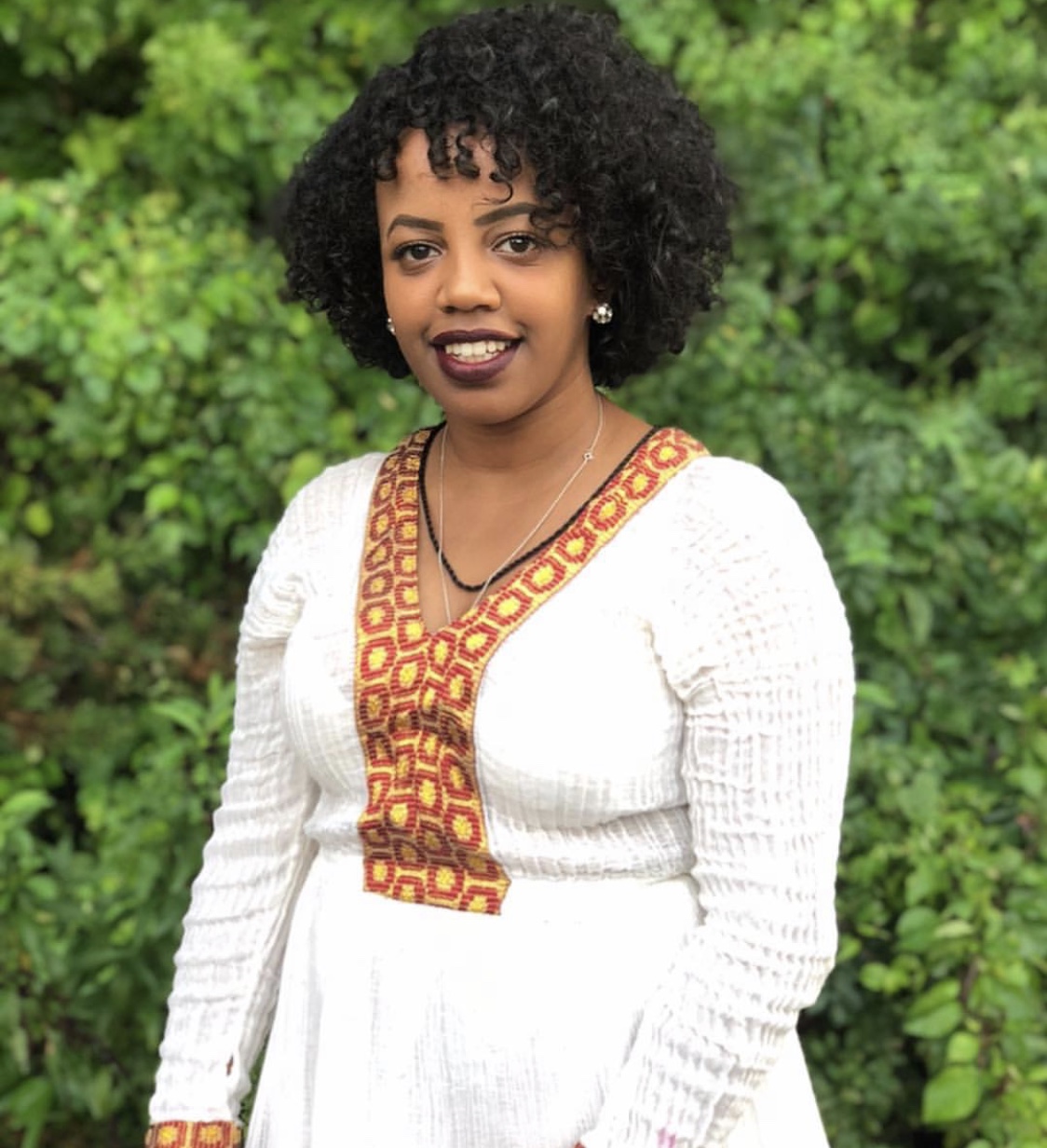Oct 10 2019
This article was published on Oct 10 2019 and was archived on Oct 01 2020. The information below may be outdated or inaccurate.
Internationa Student Spotlights
Merima Endris: Ethiopia

Q: What food / drink from your country do you miss most?
A: My favorite dish is kitfo, its finely ground, raw beef, mixed with butter and marinated in a spicy chili blend (mitmita). The beef is almost always grass-fed, as grain-fed beef can lend itself to a different texture and flavor. The result is a meaty mixture so smooth and tender that it melts in your mouth. Kitfo is typically served with collard greens (gomen) and Ethiopian cheese (ayib) with a traditional flatbread (injera).
Coffee is one of the world's most popular beverages and it was discovered in Ethiopia, in the region of Kaffa. Most traditional Ethiopian food is eaten with the hands; this is done by tearing off a piece of injera, using it to grab some food, and putting it directly in your mouth. Traditional meals are eaten from a communal plate, but you should not reach all the way across to the other side to grab food; eat what is close to you. It is polite to eat with your right hand because the left is considered unclean and therefore you should avoid using it if you can. There will always be a way to wash your hands before and after the meal. Sometimes a waiter will bring a basin and pitcher to the table. The gursha is a gesture when a person will carefully place a morsel of food directly into your mouth. It is a gesture of respect and it is courteous to accept it. I don’t really miss any type of food from Ethiopia because there a lot of restaurants here in America specifically in NOVA area, so I just go out to eat anytime I miss it.
Q: What was most difficult for you when you came here?
A:I would say the language barrier would be the most difficult thing for people when they first get here, but for me, I didn’t have a problem with that because I went to a school that taught English very well, so I didn’t struggle with communication, although I did have a little trouble with the accent and pronunciation. I have lived in America for 9 years now, and I didn’t have a hard transition coming here so I had it easy.
Q: What travel advice would you give to persons wanting to visit your country?
A:I advise people to take all the shots they need before going there, especially if you have never been there, and be cautions with what you eat because a lot of times when they make the food, it’s not sanitary. Make sure you chose the most quality restaurants, hotel or anything you do, even though it might be a little expensive.
Q: Feel free to tell us anything else that you would like to about life in Ethiopia
A: The capital of Ethiopia is Addis Ababa, which means "new flower" in Amharic; it is also the diplomatic capital of Africa. Ethiopians are known for the high altitude in the country. Ethiopians are famous for being great long-distance runners. There are more than 80 different ethnic groups in Ethiopia with just as many languages and over 200 dialects are spoken throughout the country. Ethiopia remains one of the only nations in Africa never to be colonized. It was occupied briefly by the Italians from 1936 to 1941. We follow the Julian calendar consisting of 12 months of 30 days each and a 13th month of 5 or 6 days. It is roughly 7 and a half years behind the Gregorian calendar. The Ethiopian fiscal year begins on 8 July, and the Ethiopian New Year begins on 11 September which is such a sad day here in America. We just celebrated our new year, and its currently 2012 back home. As with many equatorial countries, the sun dictates time in Ethiopia. The sunrise marks the beginning of the day and the sunset marks the end of the day. What most of the world would call 7:00, Ethiopians would call 1:00. Both noon and midnight are 6:00 in Ethiopia.
Ethiopian Orthodox Christians fast two days a week (Wednesday and Friday) and for the two months before Easter. On these days, observant Christians do not eat or drink until 3 p.m. and completely refrain from eating animal products.
Public Relations Specialist / Adjunct Instructor
